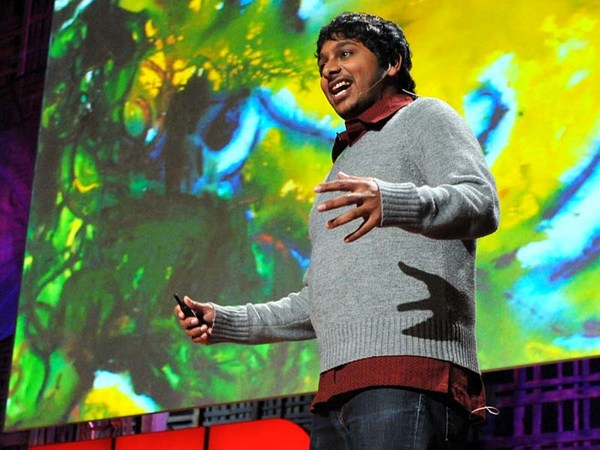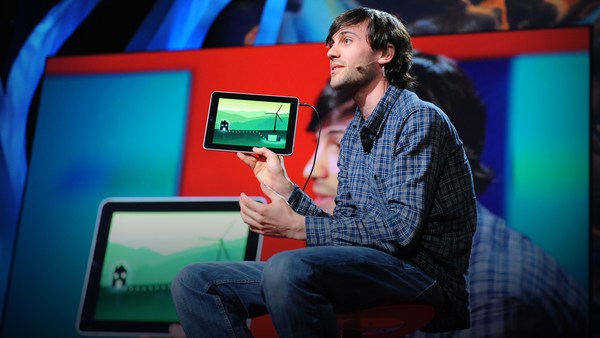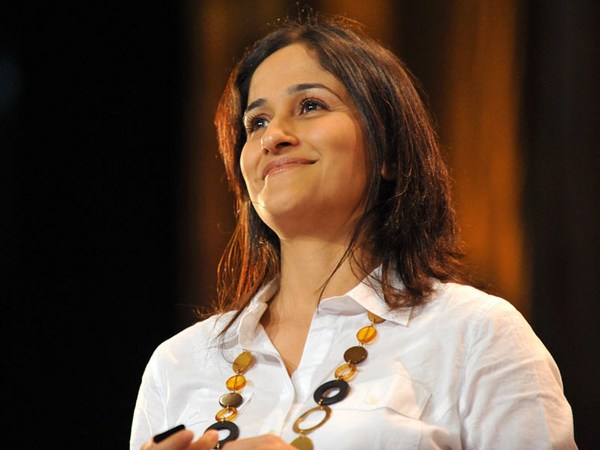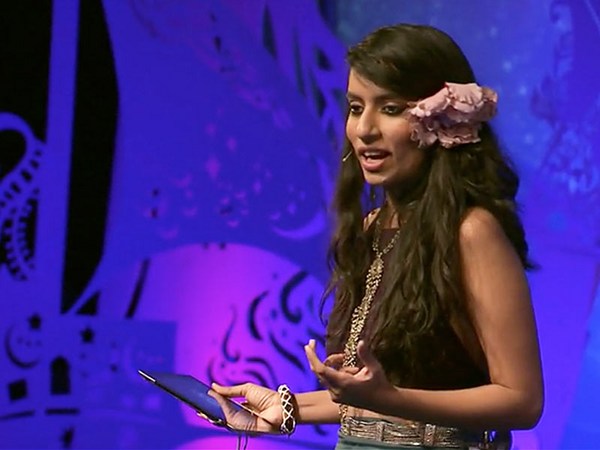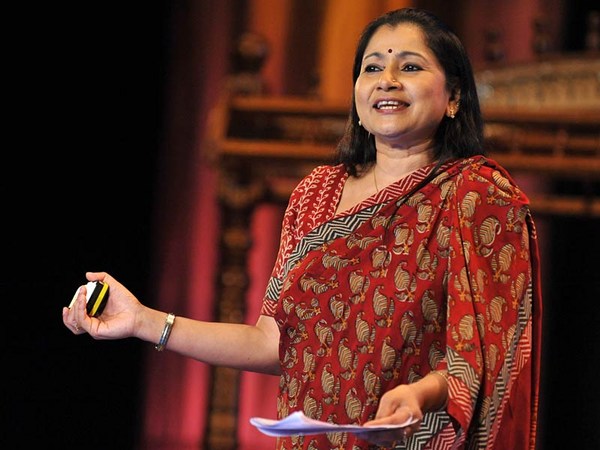Hi everyone. I'm an artist and a dad -- second time around. Thank you. And I want to share with you my latest art project. It's a children's book for the iPad. It's a little quirky and silly. It's called "Pop-It," And it's about the things little kids do with their parents.
(Music)
So this is about potty training -- as most of you, I hope, know. You can tickle the rug. You can make the baby poop. You can do all those fun things. You can burst bubbles. You can draw, as everyone should.
But you know, I have a problem with children's books: I think they're full of propaganda. At least an Indian trying to get one of these American books in Park Slope, forget it. It's not the way I was brought up. So I said, "I'm going to counter this with my own propaganda." If you notice carefully, it's a homosexual couple bringing up a child. You don't like it? Shake it, and you have a lesbian couple. (Laughter) Shake it, and you have a heterosexual couple. You know, I don't even believe in the concept of an ideal family.
I have to tell you about my childhood. I went to this very proper Christian school taught by nuns, fathers, brothers, sisters. Basically, I was brought up to be a good Samaritan, and I am. And I'd go at the end of the day to a traditional Hindu house, which was probably the only Hindu house in a predominantly Islamic neighborhood. Basically, I celebrated every religious function. In fact, when there was a wedding in our neighborhood, all of us would paint our houses for the wedding. I remember we cried profusely when the little goats we played with in the summer became biriani. (Laughter) We all had to fast during Ramadan. It was a very beautiful time.
But I must say, I'll never forget, when I was 13 years old, this happened. Babri Masjid -- one of the most beautiful mosques in India, built by King Babur, I think, in the 16th century -- was demolished by Hindu activists. This caused major riots in my city. And for the first time, I was affected by this communal unrest. My little five-year-old kid neighbor comes running in, and he says, "Rags, Rags. You know the Hindus are killing us Muslims. Be careful." I'm like, "Dude, I'm Hindu." (Laughter) He's like, "Huh!"
You know, my work is inspired by events such as this. Even in my gallery shows, I try and revisit historic events like Babri Masjid, distill only its emotional residue and image my own life. Imagine history being taught differently.
Remember that children's book where you shake and the sexuality of the parents change? I have another idea. It's a children's book about Indian independence -- very patriotic. But when you shake it, you get Pakistan's perspective. Shake it again, and you get the British perspective.
(Applause)
You have to separate fact from bias, right. Even my books on children have cute, fuzzy animals. But they're playing geopolitics. They're playing out Israel-Palestine, India-Pakistan. You know, I'm making a very important argument. And my argument [is] that the only way for us to teach creativity is by teaching children perspectives at the earliest stage. After all, children's books are manuals on parenting, so you better give them children's books that teach them perspectives. And conversely, only when you teach perspectives will a child be able to imagine and put themselves in the shoes of someone who is different from them.
I'm making an argument that art and creativity are very essential tools in empathy. You know, I can't promise my child a life without bias -- we're all biased -- but I promise to bias my child with multiple perspectives.
Thank you very much.
(Applause)
